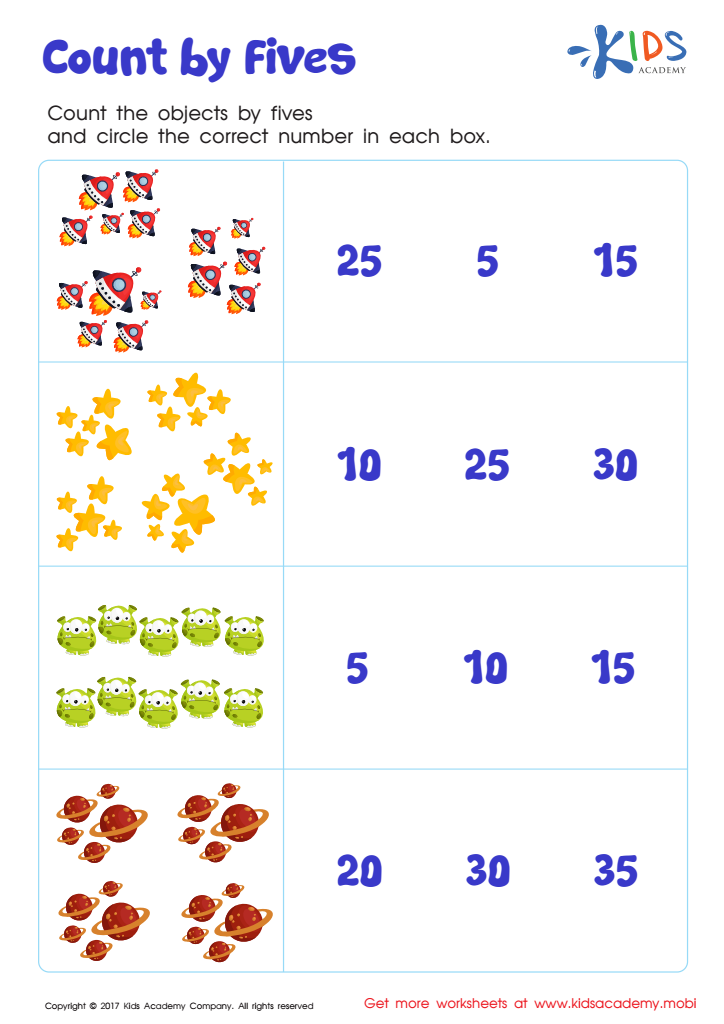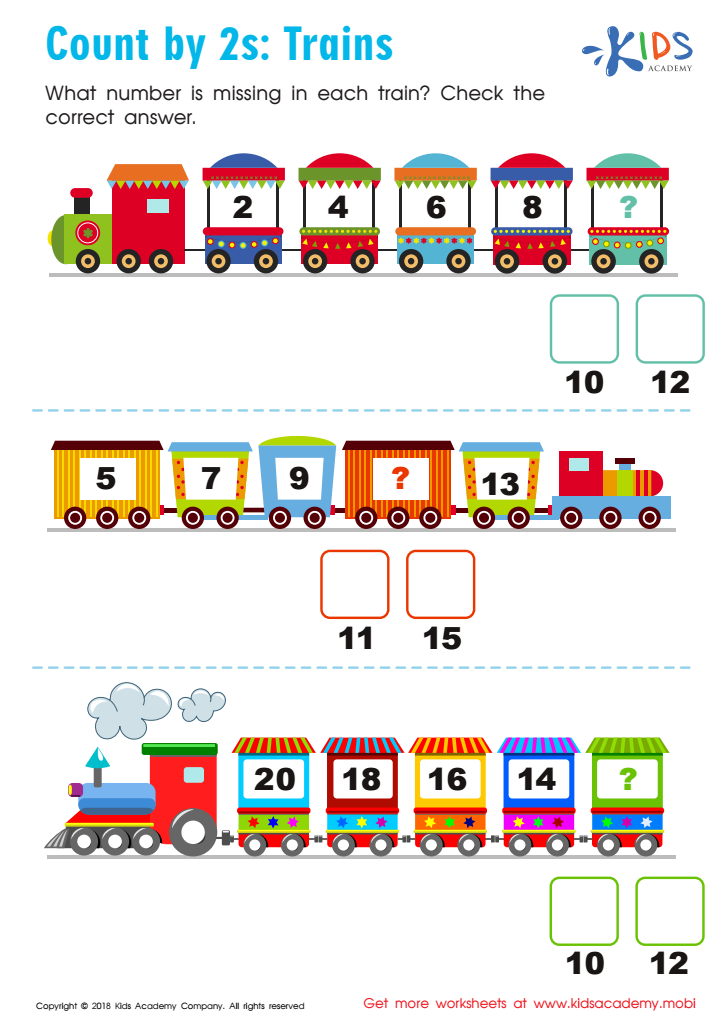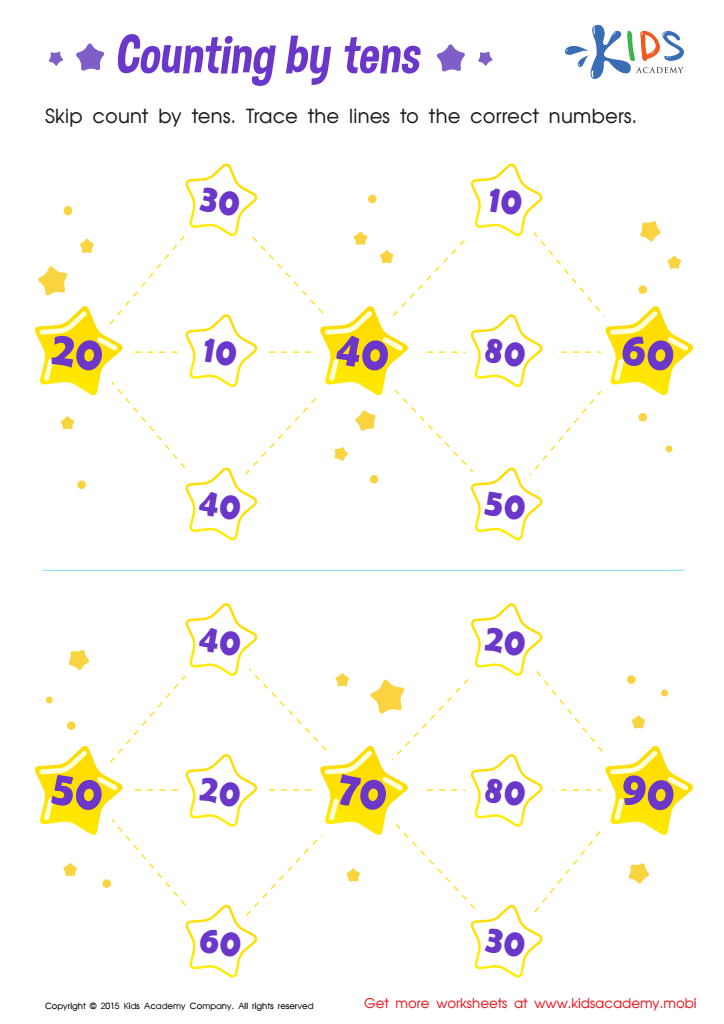Number Recognition Skip Counting Worksheets for Ages 4-9
3 filtered results
-
From - To
Introduce your child to the foundational skills of number recognition and skip counting with our engaging worksheets designed for ages 4-9. These colorful and interactive activities make learning exciting, helping young learners grasp essential math concepts. Our carefully crafted worksheets encourage children to recognize numbers and develop counting skills through fun patterns and sequences. Whether practicing by twos, fives, or tens, each worksheet fosters a strong mathematical foundation. Ideal for classroom settings or homeschooling, these resources promote confidence in young learners as they embark on their math journey. Explore our number recognition skip counting worksheets today and watch your child thrive in math!


Skip Counting by 5s: Space Math Printable


Count by 2's: Trains Worksheet


Learn Dozens: Counting by Tens Printable
Number recognition and skip counting are fundamental skills crucial for young learners aged 4-9. Understanding numbers lays the groundwork for mathematics, promoting logical reasoning, problem-solving, and critical thinking. When children recognize numbers, they not only learn to identify quantities but also develop a sense of number order and value. This foundational skill fosters confidence in mathematical abilities, paving the way for more complex concepts in later grades.
Skip counting—counting by twos, fives, tens, and so on—enhances this foundation by introducing patterns and grouping. It simplifies addition and multiplication concepts, enabling children to perform calculations more efficiently. By grasping skip counting, children begin to see relationships between numbers, which strengthens their overall number sense.
Parents and teachers play a crucial role in nurturing these skills. Engaging children in fun activities like songs, games, or real-life counting scenarios makes learning enjoyable. Encouraging regular practice promotes retention and advancement in math proficiency. Ultimately, fostering number recognition and skip counting skills sets children on a path to academic success, ensuring they are better prepared for future learning challenges in mathematics and beyond. This investment in early education is key to cultivating lifelong skills essential in today's increasingly mathematical world.

 Assign to My Students
Assign to My Students





.jpg)










